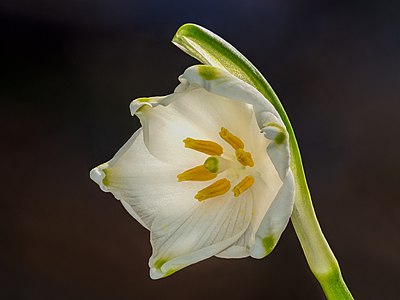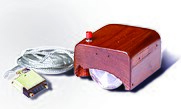Wikipedia:Main Page history/2024 December 9
From today's featured article
Golding Bird (9 December 1814 – 27 October 1854) was a medical doctor who researched the chemistry of urine and kidney stones. From 1836, he lectured at Guy's Hospital and published Elements of Natural Philosophy, a textbook on science for medical students. Bird was innovative in the medical use of electricity, designing his own equipment and bringing medical electrotherapy into the mainstream. He invented a variant of the Daniell cell in 1837, making key discoveries in electrometallurgy. Bird also designed a flexible stethoscope, and in 1840 published the first description of one. In 1842, he was the first to describe oxaluria, a condition which leads to the formation of a particular kind of stone, and published a comprehensive paper on urinary deposits in 1844. A devout Christian, Bird believed that Bible study and prayer were just as important to medical students as their studies. He founded the Christian Medical Association, although it did not become active until after his death. (Full article...)
Did you know ...
- ... that Lizzie Esau (pictured) covered a 1955 song for a 2024 series about a 1553 queen?
- ... that a Syrian filmmaker repurposed footage from his first film in his last film in order to criticize his younger self?
- ... that Celeste Caeiro's actions led to the naming of the 1974 coup in Portugal as the Carnation Revolution?
- ... that Operation Blooming Onion uncovered instances of "modern-day slavery" amongst H-2A visa workers in the state of Georgia?
- ... that L'Attaque, the board game that became Stratego, was patented in 1908 by its designer, a 57-year-old woman?
- ... that the Australian Light Weight Air Warning Radar was once loaded using canoes and later manhandled up a 200-foot cliff?
- ... that Thomas Sewell said that in 2017 he attempted to recruit Brenton Tarrant, the perpetrator of the 2019 Christchurch mosque shootings, into the Lads Society?
- ... that while supporting a law easing restrictions on abortion in Gabon, Prime Minister Rose Christiane Raponda said "it is not yet the right time"?
- ... that "the world's loneliest duck" arrived on the remote Pacific island country of Niue in 2018?
In the news
- Syrian rebel forces capture Damascus following multiple offensives as overthrown president Bashar al-Assad (pictured) flees to Russia.
- Notre-Dame de Paris reopens following reconstruction after the 2019 fire.
- The first round of the Romanian presidential election is annulled by the Constitutional Court following allegations of Russian electoral interference.
- The French government, led by Michel Barnier, collapses following a vote of no confidence by the National Assembly.
On this day
December 9: International Anti-Corruption Day
- 1688 – In one of two substantial military actions in England during the Glorious Revolution, forces loyal to William of Orange were decisively victorious at the Battle of Reading.
- 1897 – French actress, journalist and leading suffragette Marguerite Durand founded the feminist newspaper La Fronde.
- 1968 – Douglas Engelbart gave what became known as "The Mother of All Demos", publicly debuting the computer mouse (pictured), hypertext, and the bit-mapped graphical user interface using the computer system NLS.
- 2008 – Rod Blagojevich, the governor of Illinois, was arrested on corruption charges, including for attempting to sell the U.S. Senate seat being vacated by president-elect Barack Obama.
- Joseph Desha (b. 1768)
- Fritz Haber (b. 1868)
- Alister Murdoch (b. 1912)
- Eliane Morissens (d. 2006)
From today's featured list
Rock-climbing equipment varies with the specific type of climbing undertaken. Bouldering needs the least equipment outside of climbing shoes, climbing chalk and optional crash pads. Sport climbing adds ropes, harnesses, belay devices, and quickdraws to clip into pre-drilled bolts. Traditional climbing adds the need to carry a "rack" of temporary passive and active protection devices. Multi-pitch climbing, and the related big wall climbing, adds devices to assist in ascending and descending fixed ropes. Aid climbing uses unique equipment to give mechanical assistance to the climber in their upward movement. Advances in equipment are a key part of rock-climbing history, starting with the climbing rope. Modern equipment includes dynamic ropes, plyometric training tools, advanced spring-loaded camming devices for protection, and advanced rope control devices such as self-locking devices, progress capture devices, and assisted braking devices. (Full list...)
Today's featured picture

|
Leucojum vernum, commonly called the spring snowflake, is a species of flowering plant in the family Amaryllidaceae. It is native to central and southern Europe from Belgium to Ukraine. L. vernum is cultivated as an ornamental plant for its white flowers in spring. The plant multiplies in favourable conditions to form clumps. Each plant bears a single white flower with greenish marks near the tip of the tepal, on a stem about 10 to 20 centimetres (3.9 to 7.9 inches) tall, occasionally more. The Latin specific epithet vernum means 'relating to spring'; its close relative, L. aestivum, blooms in summer. This photograph of a L. vernum flower, taken in Bamberg, Germany, was focus-stacked from 32 separate images. Photograph credit: Reinhold Möller
Recently featured:
|
Other areas of Wikipedia
- Community portal – The central hub for editors, with resources, links, tasks, and announcements.
- Village pump – Forum for discussions about Wikipedia itself, including policies and technical issues.
- Site news – Sources of news about Wikipedia and the broader Wikimedia movement.
- Teahouse – Ask basic questions about using or editing Wikipedia.
- Help desk – Ask questions about using or editing Wikipedia.
- Reference desk – Ask research questions about encyclopedic topics.
- Content portals – A unique way to navigate the encyclopedia.
Wikipedia's sister projects
Wikipedia is written by volunteer editors and hosted by the Wikimedia Foundation, a non-profit organization that also hosts a range of other volunteer projects:
-
Commons
Free media repository -
MediaWiki
Wiki software development -
Meta-Wiki
Wikimedia project coordination -
Wikibooks
Free textbooks and manuals -
Wikidata
Free knowledge base -
Wikinews
Free-content news -
Wikiquote
Collection of quotations -
Wikisource
Free-content library -
Wikispecies
Directory of species -
Wikiversity
Free learning tools -
Wikivoyage
Free travel guide -
Wiktionary
Dictionary and thesaurus
Wikipedia languages
This Wikipedia is written in English. Many other Wikipedias are available; some of the largest are listed below.
-
1,000,000+ articles
-
250,000+ articles
-
50,000+ articles





